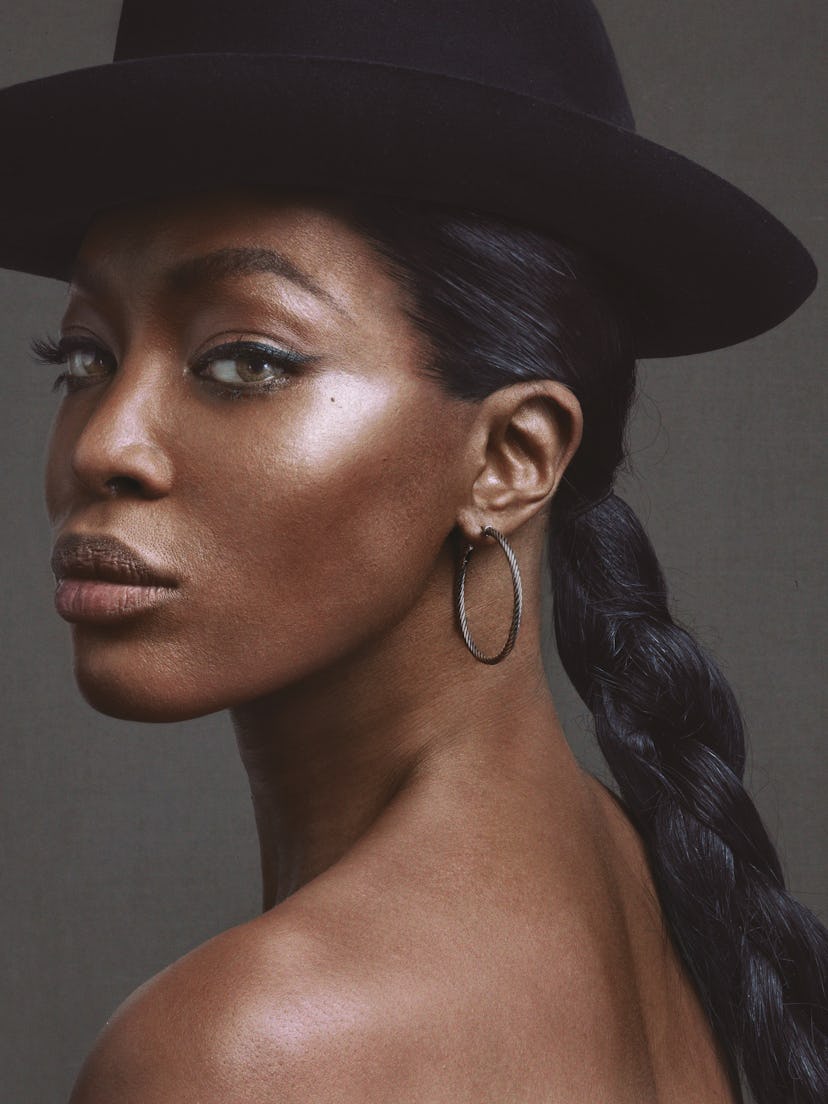Naomi Campbell Explains Her Reluctance to Do Interviews in England
Campbell doesn’t just think the British press is still racist toward Black models: “They haven’t learned how to be not-racist, period!”

“I may be considered one of the top models in the world, but in no way do I make the same money as any of them,” Naomi Campbell said of her white peers in 1991. Whether in her early twenties or at her current age of 50, the supermodel has never not called out racism for what it is. So when it came to the topic of “angry Black women” in her new Vogue cover story, unsurprisingly, Campbell didn’t mince words. “I am quite over it,” she said. “Is it now that we have permission to speak? Well, I have always spoken.”
Still, the interview marks something of a first for Campbell: her most vocal condemnation of British racism yet. It’s also a clear explanation of why Campbell is “still a little skeptical about doing interviews in England,” decades after interviewers would describe her anger as “on a different level.” The British media, Campbell maintained, has yet to stop being racist toward Black models. In fact: “They haven’t learned how to be not-racist, period!”
Campbell considers the American media to have made some progress in addressing “racism problems.” But to her, their U.K. counterparts are still in denial. “No disrespect to the country I was born in, but we need to dig it up and bring it up and deal with it. No more chucking it down the sides,” Campbell said. “I’d rather have racism be right in front of my face and know what I’m dealing with, than to have it suppressed.”
To Campbell, though, the remarks are not her boldest yet. “Nothing has changed,” she insisted. “Only that I know that I will have the support of my culture now when I speak.” And no matter how begrudgingly, she’s since come to accept the British newspapers’ “combative ways. “I see they’d rather write some trash thing that you’ve done, rather than the good that you’ve done,” Campbell said. “When I was younger it used to upset me, but it doesn’t now—I’m not looking for those validations anymore.”
As for racism in society overall, Campbell does have something of a solution. “I think as a generation, as a whole, can we get reparations for our culture, for what we’ve been through?” she said, in support of the movement for colonial countries to compensate the descendants of those they once enslaved.
“I absolutely believe we are going to get the positive outcome we deserve. But we have to do our work in making sure we get it,” Campbell continued. “I think reparations are important for the people to really see that this is something that’s been taken seriously.”
Related: 8 Iconic Naomi Campbell Moments Still Reverberating Through the Fabric of Culture